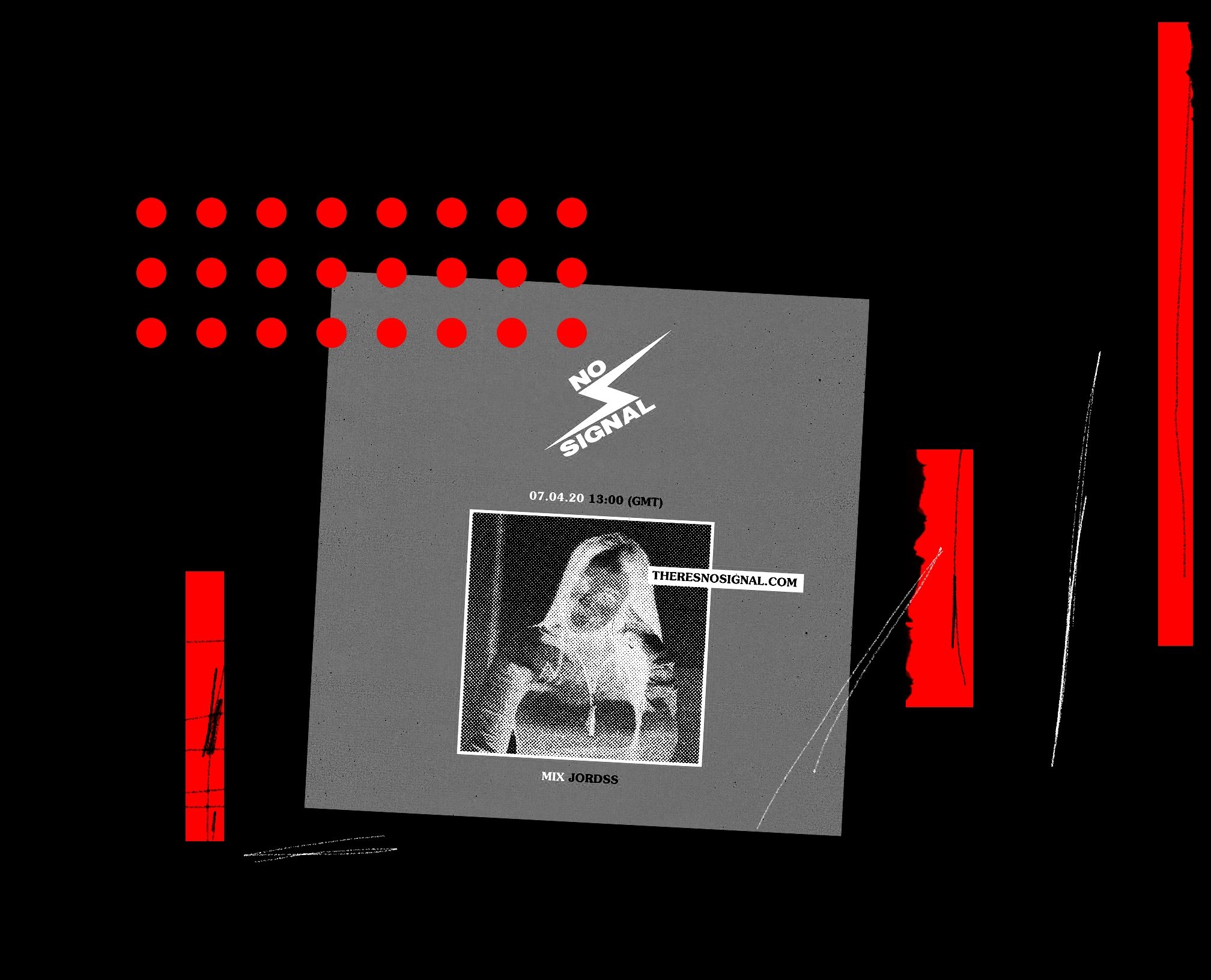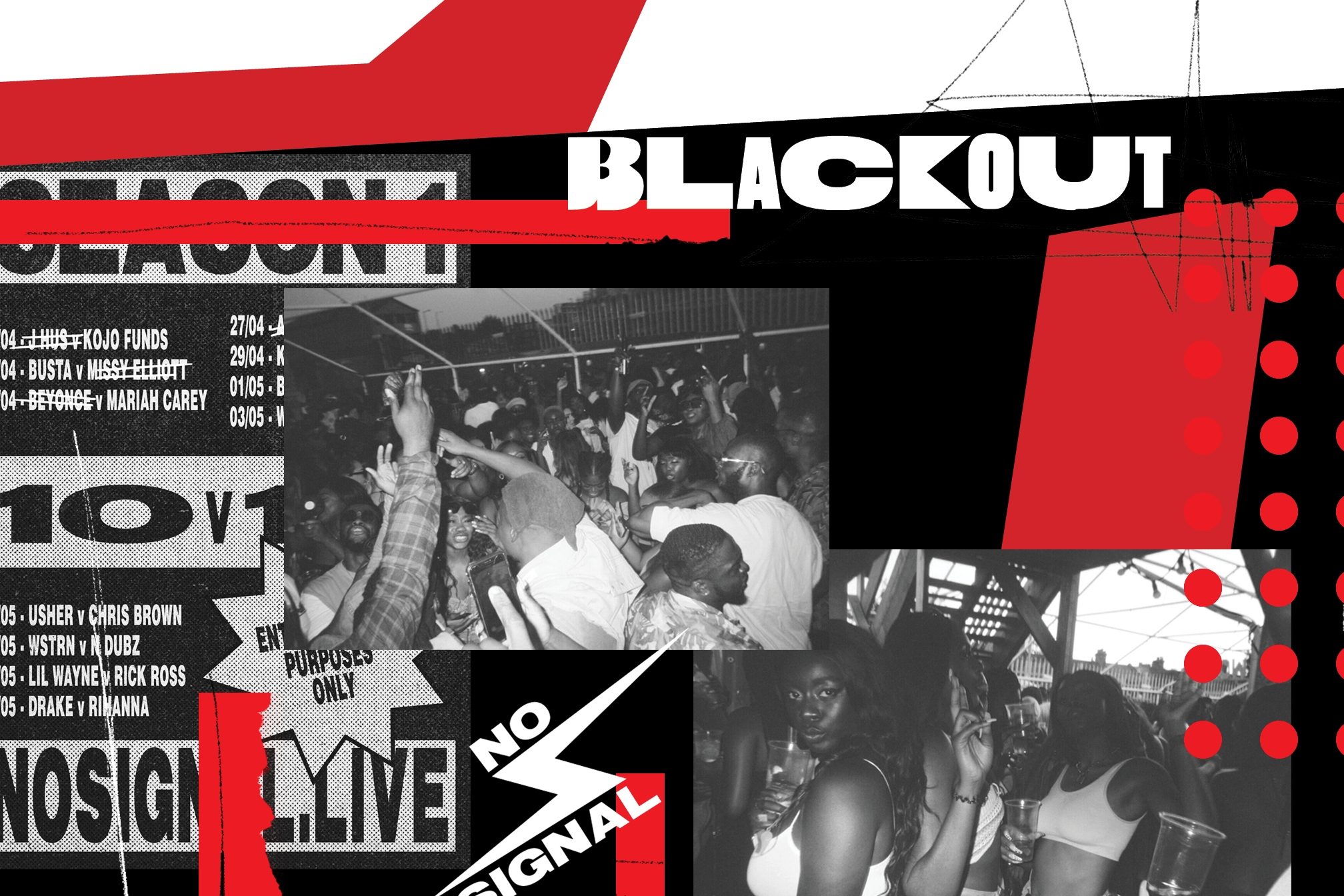 Features
Features
No Signal is the future of radio
Yewande Adeniran explores the impact of No Signal, the radio station celebrating Black British culture and communities
Okay so picture this. It’s the peak of lockdown, you still haven’t seen any of your friends and you’ve binge watched everything you possibly can on Netflix so you start scrolling through Twitter. Amid the cat videos, Simpsons memes and cries for help, there is an underground radio community peaking through. No Signal has been a godsend during lockdown. It’s been a way to connect with other Black people while the world seemed to be crumbling around you. Reminding you that we’re truly all in this together.
No Signal is a Black British online radio station firmly focused on providing a top tier experience online, and the curation, guests and genre shows are so far unmatched. At the moment, there isn’t anything like it. Black British radio hosts, DJs and producers are often sidelined to an addition, for example BBC 1Xtra or Capital XTRA. But from the onset, No Signal is unapologetically Black. When you reach the No Signal homepage, you’re met with the words ‘#blackradio, for music lovers’. And it’s exactly that.
Before No Signal, there was Recess. A radio show JoJo Sonubi co-hosted alongside his brother David to promote their parties of the same name. It was a lighthearted approach to radio: no stushness, just vibes — a way to hype people up before the party. Starting with just a few listeners to over 30, JoJo picked up on the want of people to experience the energy of the parties wherever they were based.
Over the last two years, it escalated. More and more people tuned in with the genres showcased expanding with it and quickly, Recess became a staple party of the London scene. Speaking to JoJo, I was given an insight into the motives behind Recess and No Signal. “First of all I wanted to do a party with no phones, then that changed. Then I wanted less restrictions but have the DJs flex because in a club you don’t get the DJs full taste, you just get what they know is going to work for the crowd,” he says.
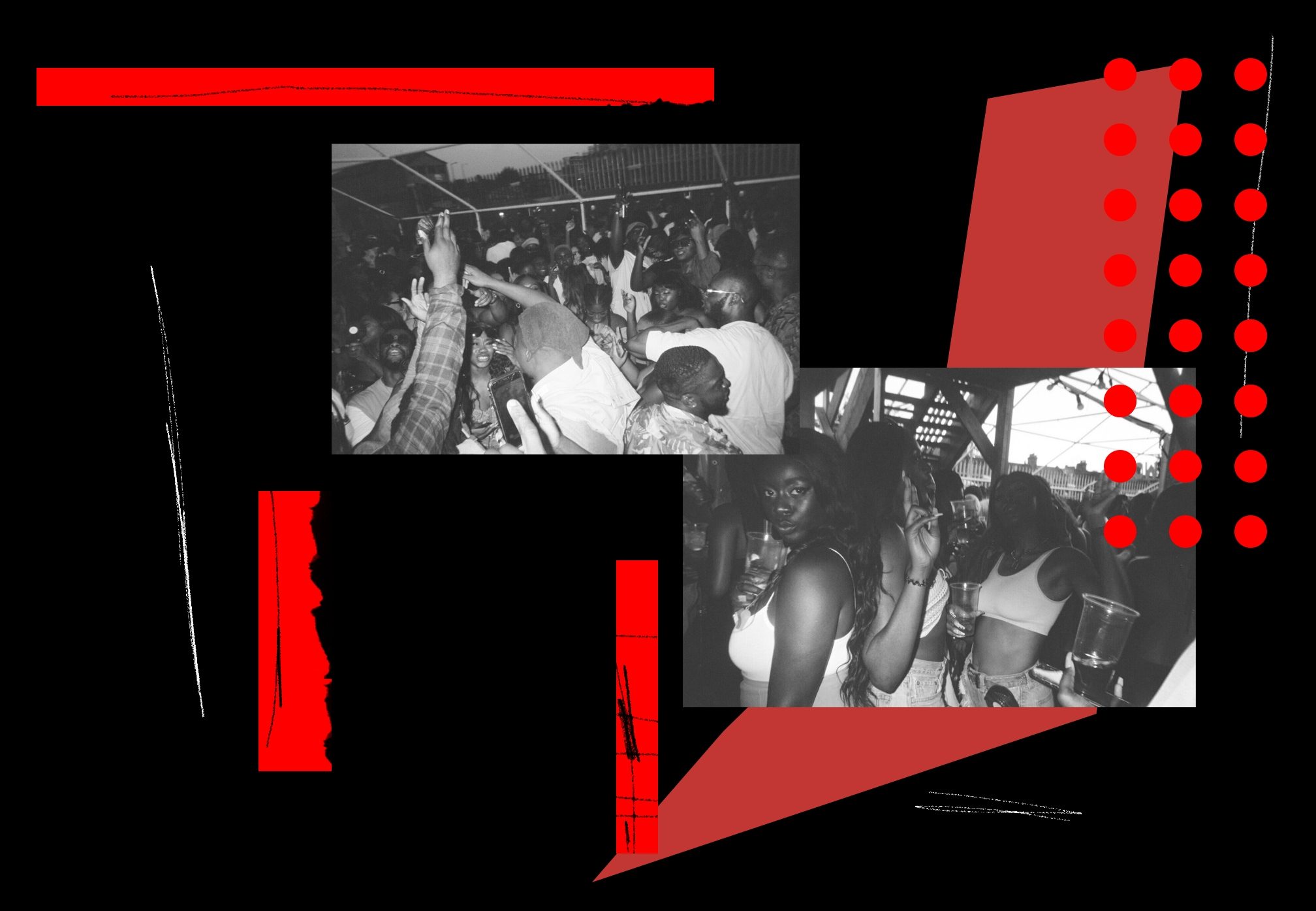
Taking Recess to sesh capital Ibiza and then New York was the next move. Combining the house party vibe with the sun, the event was streamed live, giving us all FOMO and marking the beginning of No Signal online. The clear ‘fuck it lets do it’ attitude rings true of everything they do. Not limiting themselves to physical spaces or conforming to what is expected of traditional radio allowed No Signal to adapt to lockdown. “We had the platform so when lockdown hit, we wanted to stream shows from people’s bedrooms. We didn’t plan for this to happen but now it has, we’re using this time to do things we’ve always wanted to,” JoJo says.
We’re at a crucial early point in the movement to truly address the systematic inequality faced by Black British individuals. There is still a long road ahead, but JoJo is optimistic that we can at least create our own space, url and irl, that can be a step towards a more positive future. “In a space where we’re not mainstream, we want to be able to be that for certain music. We acknowledge we’re not the first ones to do something like this but we want to do it for our current generation, our wave of people coming through. We want it to impact the generation after us.”
Going into this further, JoJo explains how this relates to wider societal issues, “in a country that would prefer for Black stories to be told not by us or for us to not have agency, we want to control our narratives and be in charge of our own creativity. We might not change everything but we want Black people to feel a sense of pride.”
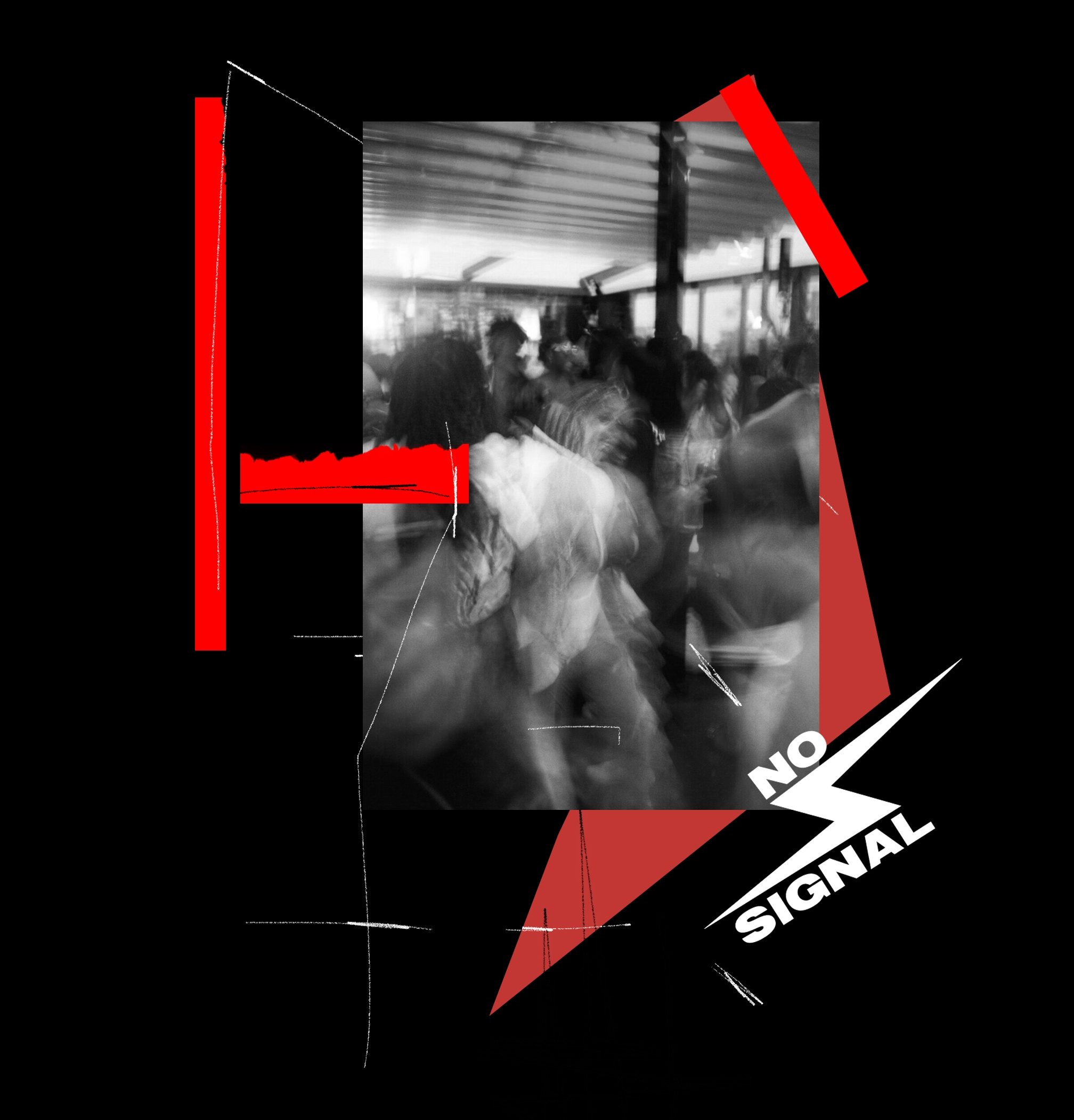
After connecting with DJ, producer and photographer Raheim online, we spoke about the importance of interacting with other music heads on Twitter; No Signal’s curation and presenters have captured all our hearts. “The work Recess has done over lockdown is truly inspiring. When I look at the many internet radio stations that I know and enjoy, they're great of course, but given they are all white owned you can somewhat sense that through their DJ curation,” says Raheim. This is why No Signal is vital in the possibilities it represents. The DIY attitude, shared history and focus on Black Joy has given the TL so much energy.
One thing that is always mentioned in tandem with No Signal is the curation: it’s always on point and always giving you sounds you didn't even know you needed. Raheim explains this necessity further, “No Signal is different and I love that. When there are Black creatives in charge you sense that in the output. We have gospel on Sundays, we have slow jams late at night, we have r’n’b focused shows, all things I really miss hearing on the waves. And the interaction with other music enthusiasts on Twitter has made this show truly remarkable.”
Read this next: Annie Mac: "There's not enough Black people in every level of the music industry"
The focus on covering every facet of the Black British experience isn’t limited to radio and throwing parties. Jojo is the co-curator of the ultimate throwback photo archive Black In The Day, alongside Tania Nwachukwu. The family photos, all too familiar snapshots of Cherubim and Seraphim church services, and visual insights into the Notting Hill Carnival in the 90s are heartwarming and nostalgic.
The shift to streaming services and primarily online hyperconsumption of music has its downfalls, but without Twitter and Soundcloud I would never have come across Raheim, No Signal or many of the people I’ve met today that I consider friends. In an increasingly isolating world, access to url spaces and forums have created a sense of community and belonging.
No matter how turbulent society seems to be, there is always one constant. The need to connect, build and experience joy, but also look out for one another. Independence Days from across the diasporas are celebrated online, directing people to how to extend support to those in the motherland who are politically persecuted, and taking a firm stance against sexism and gender based violence are core community values. Inclusion and diversity are words that are mostly thrown around for social clout but through expert curation, No Signal is both diverse and inclusive, leaving no Black person behind.
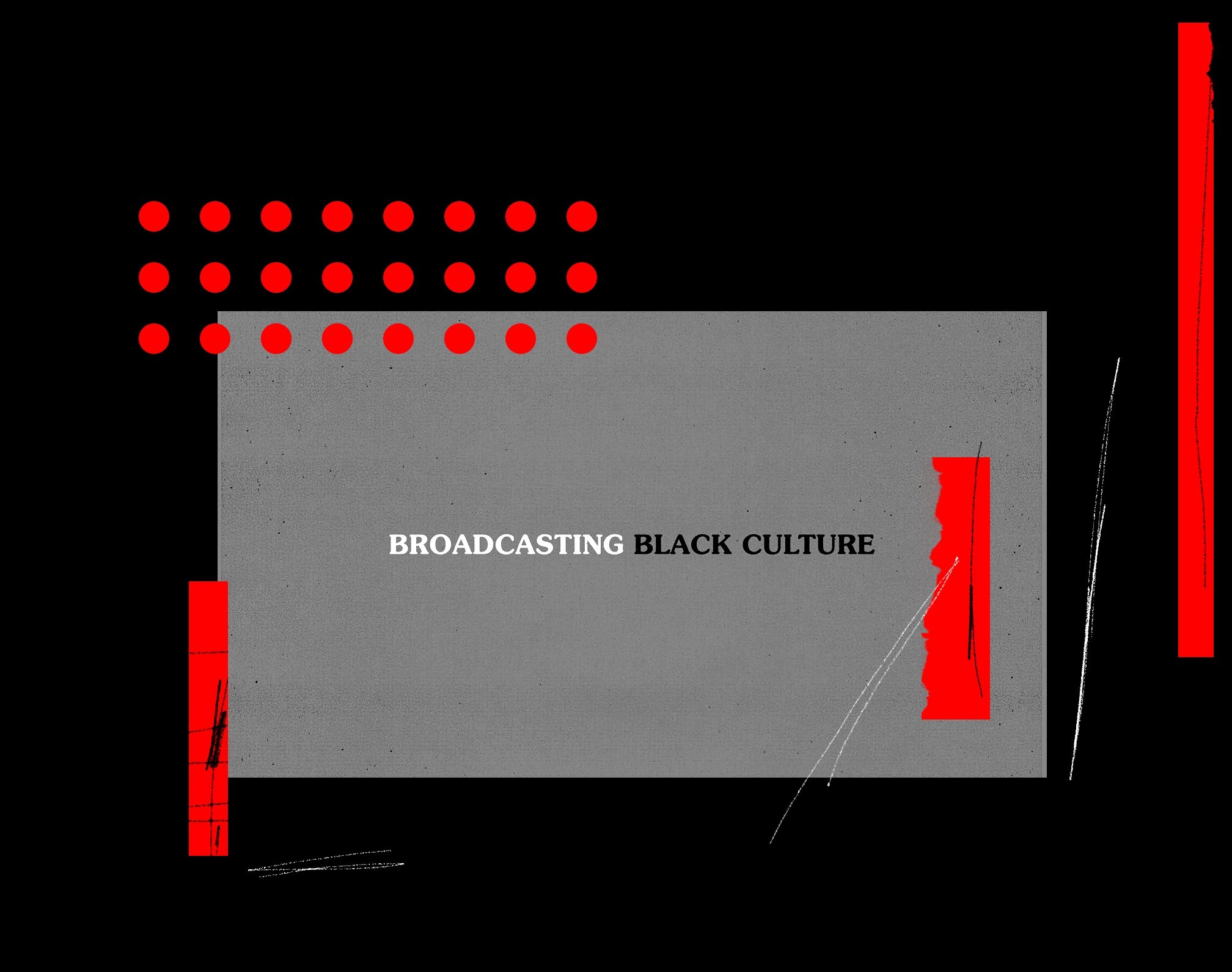
No Signal building on the proud history of Black British radio. Honouring every Black genre from soul to r’n’b to hip hop and electronic music, there isn’t a sound that hasn’t been covered. When considering the legacy of Black British radio, the influence of Trevor Nelson can be felt across the airwaves. As one of the key figures in showcasing the very best of Black music here in the UK and further afield, Trevor Nelson has been a household staple for the last 30 years. Since his humble beginnings on Kiss FM in 1986, when it was still a pirate station, to his current regular show ‘Rhythm Nation’ on BBC Radio 2 and his Old Skool selections on BBC 1Xtra, Trevor Nelson is now one of the most prominent radio presenters.
Read this next: Sting gave your favourite grime MCs their big break – so why haven't you heard of him?
It’s an undeniable fact that Black music is part of the fabric of radio. No matter what station you turn on, everything from rock to pop to garage has Black roots. Speaking on how radio has changed over the years and the current boom of digital stations offering a variety of sounds, Trevor Nelson reminiscences the early days: ‘In the mid 80s, there were only four channels on TV and only a few radio stations that were national. If you liked a particular type of music and they didn’t cater to you, what were you going to listen to?”. Before radio stations like Kiss and Rinse had licenses, the only way to listen to house, grime, soul, r’n’b and other then predominately Black genres was hoping your radio picked up pirate stations. Fast forward to 2020 and we’re spoilt for choice. “There were only one of two specialist shows, I had to wait all week just to hear music you were into. There was no station you could put on any time of the day and hear what you wanted to,” recalls Trevor.
No Signal is that station. You can switch on anytime of the day, sit back and relax. If you’re in the mood for soca, The Friday Fete show is for you or if you want to get rowdy lock in every week for #NS10v10, the highlight of my week. The premise is simple: two hosts rep a side - this could be an artist, genre or location - and the audience votes on Twitter after each round. At the end, a winner is declared. Personally it’s my favourite radio show because there’s nothing quite like getting rowdy at home in your pjs with a can in hand. The infamous diaspora wars between Nigeria and Jamaica, nearly ended during the Vybz Kartel vs Wizkid clash, with Wiz winning 10-0. Unbiasedly, I must say I’m not surprised, Nigerians are unbeatable.
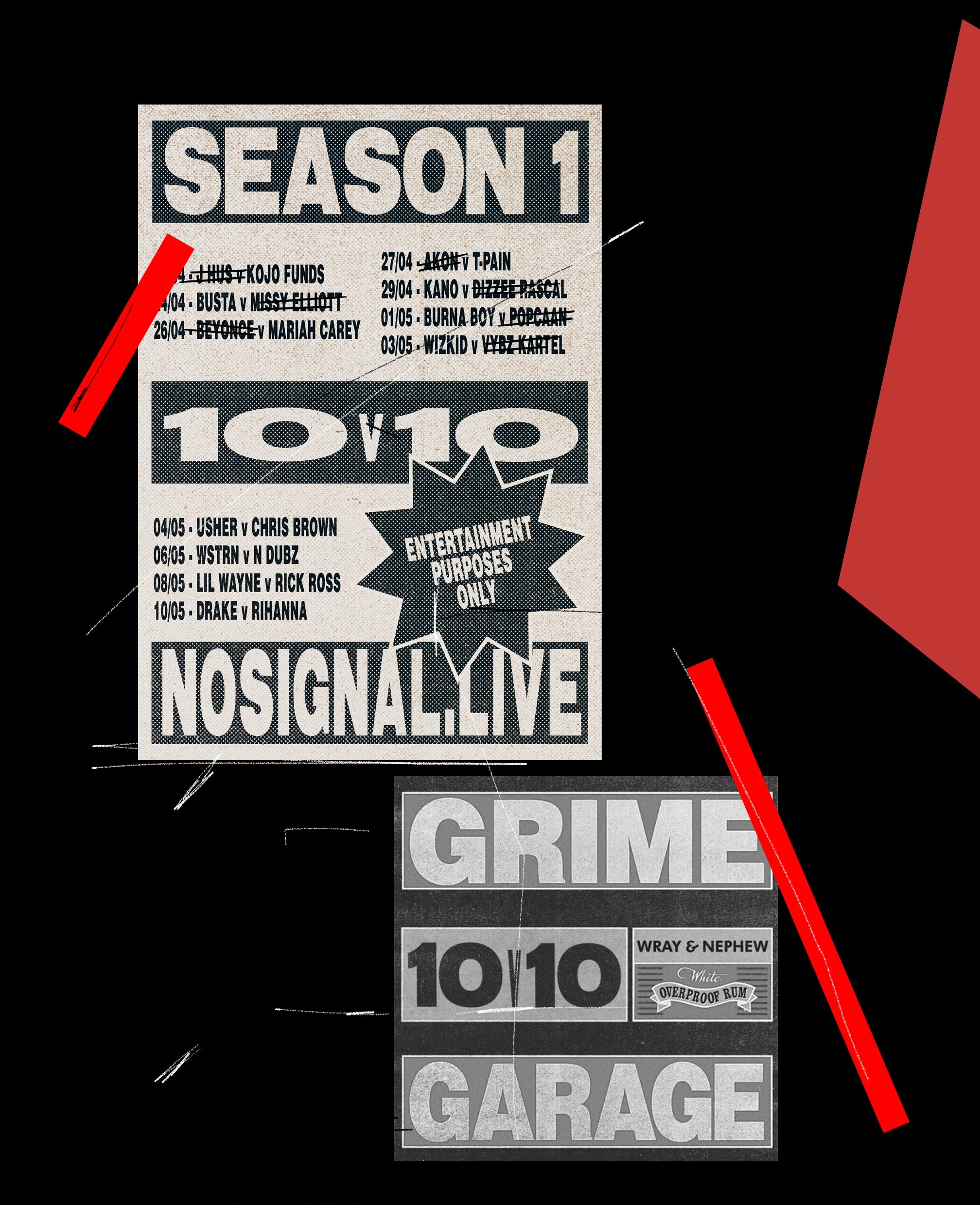
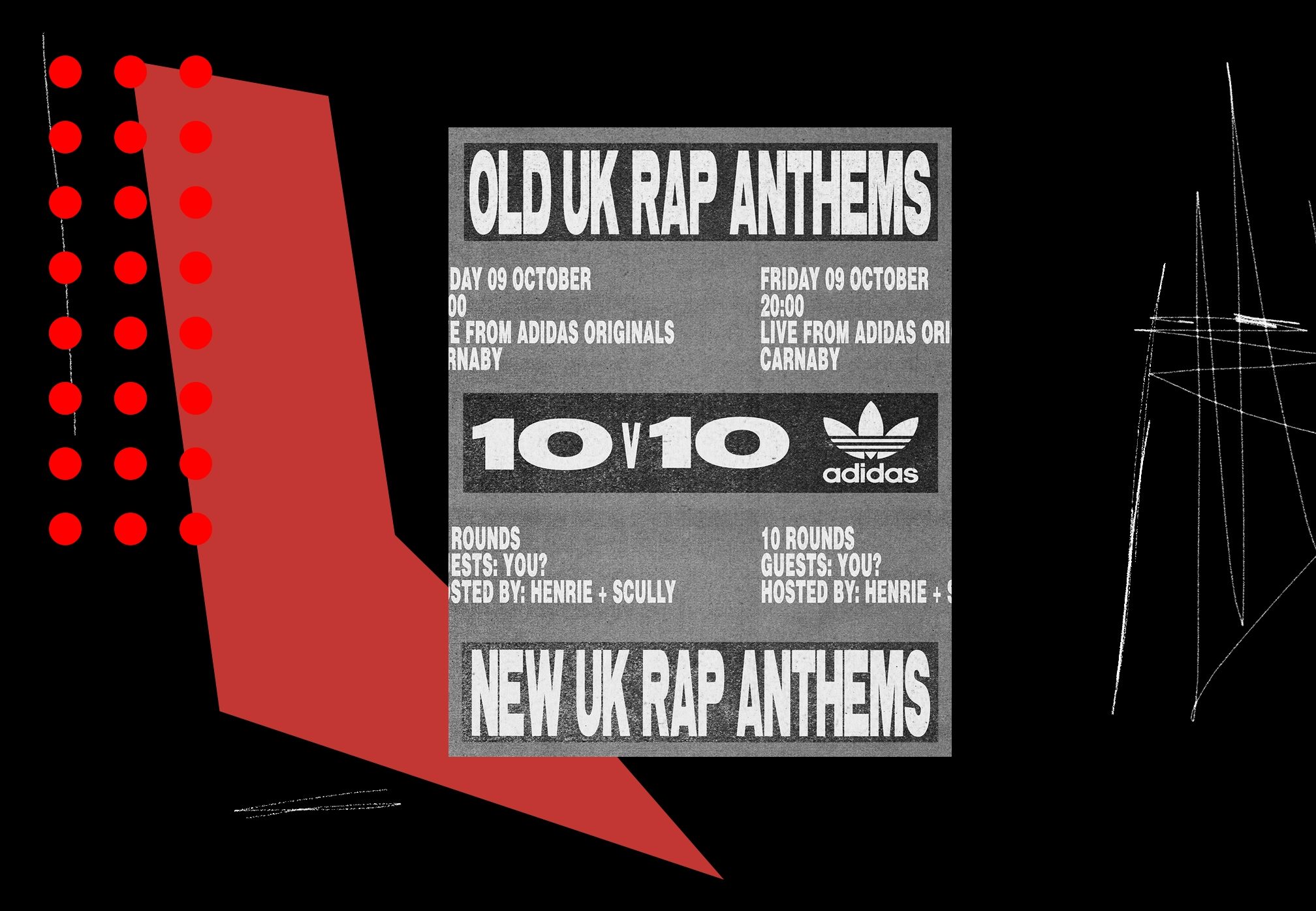
One of the most controversial moments of the already legendary #NS10v10 saw innovative chef and content creator MunchClubTV and one of the UK’s best DJs A.G clash live on the timeline. With MunchClub returning to rep North London and A.G debuting for East, the two went head to head. Again showing absolutely no bias here, I went in thinking North London would win. What else would you expect when one of Tottenham’s finest Adele reps your ends live on air! Unfortunately, we came second.
To get the lowdown, I spoke to each contender. If you’re unfamiliar with A.G, she’s a DJ, producer and radio host who’s been on the airwaves for 11 years and is also a Mariah Carey specialist. Presenting The M'n'M Show and Beauty Blender with Manara, both on NTS, her style floats between club, grime, garage and beyond. Echoing the same sentiments as Raheim, she says: ‘It’s the first time I’ve had an unapologetically Black experience. It just shows that given the chance, stations like No Signal can be a major pillar of British culture.” The contribution Black British people have to the culture, music, nightlife and entertainment is massive, and No Signal is for the people and by the people.
MunchClubTV expands on this, “we’re watching history happen in front of our eyes. We’ve always had token stations where they give you a semblance of what you want like Choice was back in the day. To see the spirit of community and representation is important. It’s not just garage and grime, there are 6/7 hour Francophone parties. It hasn’t become a commercial entity, they’ve stayed true.” It’s this authenticity that has gained No Signal thousands of loyal listeners. From the second you switch on the station, you feel like you’re part of something, as if you’re being given an insight into your neighbour’s culture. While also giving you the chance to party and let loose, continuing the hype of the Recess parties.
This energy and online interaction is what gives the clash life and this translates to the daytime shows too. Listeners are introduced to DJs and presenters including Henrie and Scully, with significant support extended to established and upcoming talent. We might have changed, mostly, from illegally broadcasting from the rooftop of tower blocks to streaming online, but the DIY approach and graft remains the same: transmitting bangers to audiences as far as you can reach. Facing squarely towards a future when Black music is showcased by Black people to Black people but for all to enjoy, No Signal shows that despite the bleakness of 2020, the future is looking very vibsey indeed.
No Signal is crowdfunding for a permanent studio, donate on GoFundMe
Donate to Recess via Dice
Yewande Adeniran is a freelance writer, follow her on Twitter
Read this next: Get the best of Mixmag direct to your Facebook DMs
